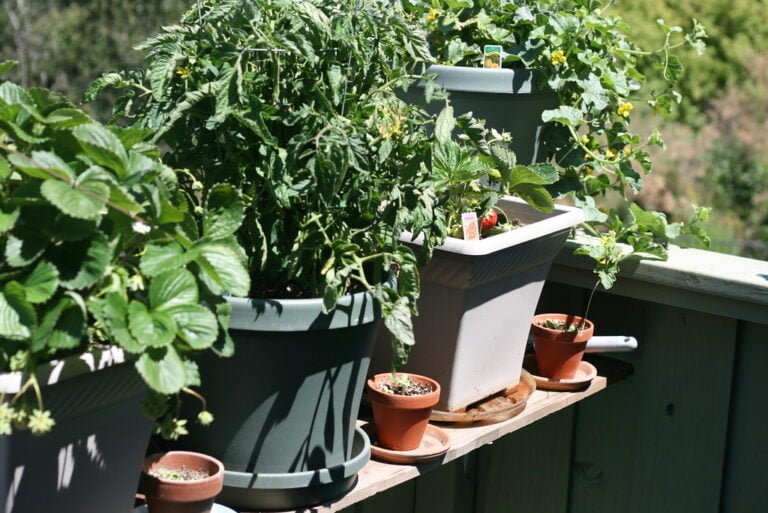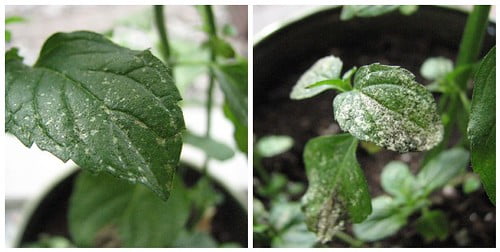Exploring Natural Pest Repellents: Plants and Companion Planting for Organic Pest Control
Are you tired of dealing with pesky pests in your garden? Look no further! In this article, we will explore natural pest repellents using plants and companion planting techniques. Discover the benefits of using organic methods to control pests and learn about essential plants and herbs that can naturally repel unwanted insects. With these practical tips and tricks, you can create a pest-resistant garden and enjoy the fruits of your labor without the hassle of harmful chemicals.
Benefits of Natural Pest Repellents
One of the key benefits of using natural pest repellents is that they can significantly reduce the number of pests in your garden. Essential oils, such as peppermint, citronella, and eucalyptus, are known for their strong scents that repel insects. By incorporating these oils into homemade pest repellent recipes, you can create a powerful solution to keep pests at bay. Not only are these natural repellents effective, but they also offer a safer alternative to chemical-based pesticides, which can harm both the environment and your health. Additionally, natural pest repellents are cost-effective, as you can make them using ingredients readily available in your kitchen or garden. By utilizing the benefits of essential oils and homemade pest repellent recipes, you can protect your garden and enjoy a pest-free space without compromising on your health or the environment.
Essential Plants for Pest Control
To effectively control pests in your garden, you can rely on the power of essential plants and companion planting. Incorporating certain plants into your garden can help deter pests naturally and reduce the need for chemical pesticides. One essential plant for pest control is marigold. Marigolds emit a strong scent that repels many insects, including aphids, nematodes, and mosquitoes. Another beneficial plant is basil. Basil not only adds flavor to your meals but also repels flies, mosquitoes, and tomato hornworms. Mint is also a great addition to your garden as it repels ants, aphids, and cabbage moths. Additionally, planting lavender can deter fleas, moths, and mosquitoes. By strategically planting these essential plants, you can enhance your garden's natural pest control methods and create a healthier environment for your plants.
Companion Planting Basics
Start by selecting compatible plants that can be grown together to enhance natural pest control in your garden. Companion planting is a technique that involves planting different types of plants together to create a mutually beneficial relationship. Not only does it help deter pests, but it also improves soil health, increases crop yields, and enhances biodiversity in your garden. Companion planting benefits your garden in many ways. For example, some plants release natural chemicals that repel pests, while others attract beneficial insects that prey on pests. To effectively practice companion planting, consider the specific needs of each plant, such as sunlight, water, and soil requirements. Additionally, pay attention to the growth habits and compatibility of different plants. By implementing companion planting techniques, you can create a balanced and thriving garden that naturally controls pests and promotes overall plant health.
Pest-Repelling Herbs to Grow in Your Garden
To continue enhancing natural pest control in your garden through companion planting, consider growing pest-repelling herbs that can provide additional protection against unwanted insects and pests. These herbs not only add beauty and fragrance to your garden, but they also serve as natural deterrents for pests. One of the most popular pest-repelling herbs is basil. Its strong aroma repels mosquitoes, flies, and aphids. Another herb to consider is rosemary, which repels cabbage moths, carrot flies, and bean beetles. Mint is also effective against ants, fleas, and aphids. Additionally, planting marigolds alongside your vegetables can help repel nematodes and whiteflies. By incorporating these pest-repelling herbs into your garden, you can benefit from the advantages of companion planting and create a natural barrier against pests.
Flowers That Deter Common Garden Pests
Plant flowers that deter common garden pests to naturally protect your plants and create a pest-free environment in your garden. Not only do these flowers add beauty to your garden, but they also serve as natural pest repellents. Here are four flowers that can help keep pests at bay:
- Marigolds: These vibrant flowers release a scent that repels many common garden pests, including aphids, nematodes, and whiteflies. Plant marigolds around your vegetable garden or interplant them with your other flowers to reap their benefits.
- Lavender: Aside from its calming aroma, lavender also acts as a natural pest repellent. Its strong scent is effective in deterring pests like mosquitoes, flies, and moths. Plant lavender near your outdoor seating areas or use its dried flowers in sachets to keep pests away.
- Nasturtiums: These colorful flowers are not only edible but also great for pest control. Nasturtiums attract aphids, cabbage worms, and whiteflies away from your other plants, acting as a sacrificial trap. Plus, their bright blooms add a pop of color to your garden.
- Petunias: These popular annual flowers not only come in a variety of colors but also repel common garden pests like aphids, tomato hornworms, and squash bugs. Plant petunias near your vulnerable plants to provide them with a natural defense.
Using Trap Crops to Divert Pests
To divert pests and protect your plants, consider using trap crops in your garden. Trap crops are specific plants that attract pests away from your main crops, effectively diverting their attention. By planting trap crops strategically, you can lure pests away from your valuable plants and minimize damage. The key is to choose trap crops that pests are particularly attracted to. For example, if you have a problem with aphids, you can plant a trap crop of mustard greens, which aphids find irresistible. By doing so, the pests will be drawn to the mustard greens instead of your prized vegetables. Remember to regularly monitor and remove the pests from the trap crops to prevent them from moving back to your main crops. Trap crops are a sustainable and organic method of diverting pests and protecting your plants without the need for harmful chemicals.
Attracting Beneficial Insects for Pest Control
Invite beneficial insects into your garden to naturally control pests. Attracting these helpful creatures can be beneficial for both pest control and pollination. Here are four ways to attract beneficial insects using permaculture practices:
- Plant a diverse range of flowering plants: Choose plants that produce nectar and pollen to attract beneficial insects like bees, butterflies, and hoverflies. Include a variety of colors and shapes to attract a wide range of species.
- Provide shelter and habitat: Create a welcoming environment for beneficial insects by incorporating features such as insect hotels, rock piles, and native grasses. These provide shelter, nesting sites, and overwintering spots for beneficial insects.
- Avoid pesticide use: Pesticides can harm beneficial insects along with pests. Instead, practice organic pest control methods like handpicking pests, using natural insect repellents, and encouraging natural predators.
- Use companion planting: Planting certain plants together can attract beneficial insects that prey on pests. For example, planting marigolds alongside tomatoes can attract ladybugs, which feed on aphids.
Incorporating Natural Repellents in Your Landscape Design
To enhance your landscape design while naturally repelling pests, consider incorporating plants with natural repellent properties. These plants not only add beauty to your outdoor space, but they also serve as a natural defense against unwanted pests. One way to integrate natural repellents into indoor spaces is by using potted plants such as lavender, mint, and rosemary. These plants not only emit pleasant aromas but also act as natural repellents against insects like mosquitoes and flies. In agricultural practices, incorporating natural pest repellents can be done by planting companion plants such as marigolds, which repel aphids and nematodes, or basil, which repels mosquitoes and flies. By strategically placing these plants throughout your landscape, you can create a natural barrier against pests while enjoying a beautiful and functional outdoor space.
Creating a Pest-Resistant Garden With Integrated Pest Management
By implementing integrated pest management techniques, you can create a garden that is resistant to pests. Here are four organic pest control methods that you can use to keep your garden pest-free:
- Crop rotation: Rotate your crops each season to disrupt pest life cycles and prevent the buildup of pests in your garden.
- Companion planting: Planting certain plants together can help repel pests. For example, planting marigolds with tomatoes can deter nematodes.
- Natural predators: Encourage beneficial insects, such as ladybugs and lacewings, to inhabit your garden. They will feed on pests and help control their population.
- Physical barriers: Use physical barriers like netting or row covers to protect your plants from pests.
Tips and Tricks for Successful Organic Pest Control
To effectively control pests in your organic garden, it is important to employ a combination of natural repellents and preventative measures. Organic pest control is all about finding safe and sustainable ways to keep pests away from your plants without harming the environment or your health. One effective tip is to create homemade pest repellents using ingredients like garlic, neem oil, and chili peppers. These natural substances have properties that repel pests and can be easily made into sprays or solutions. Another trick is to practice companion planting, which involves growing certain plants together to deter pests. For example, marigolds can repel aphids and nematodes, while basil can prevent mosquitoes. By incorporating these tips and tricks into your organic pest control routine, you can successfully protect your garden without resorting to harmful chemicals.
Frequently Asked Questions
What Are the Potential Drawbacks or Disadvantages of Using Natural Pest Repellents?
Using natural pest repellents has potential drawbacks, such as risks to pets or children. It's important to be aware of these risks and take precautions to ensure their safety when utilizing these repellents.
Can Natural Pest Repellents Be Harmful to Pets or Children?
Natural pest repellents can potentially harm pets and children. It's important to consider the safety of these repellents before using them. Different pests may require different methods of control, so effectiveness can vary.
Are There Any Specific Plants or Herbs That Repel Specific Pests, Such as Mosquitoes or Aphids?
Certain plants and herbs can repel specific pests like mosquitoes or aphids. They are effective natural pest repellents for indoor gardens or potted plants. Consider incorporating these plants to keep unwanted pests away.
How Long Does It Take for Natural Pest Repellents to Start Working?
Natural pest repellents can begin working within a few hours to a few days. However, it's important to note that some natural repellents may have potential drawbacks and could be harmful to pets or children.
Can Natural Pest Repellents Be Used Effectively in Indoor Gardens or Potted Plants?
To effectively use natural pest repellents in indoor gardens or potted plants, consider the benefits of indoor gardening and choose the right repellent for your needs. It's important to keep your plants healthy and pest-free.
Conclusion
In conclusion, natural pest repellents offer a practical and effective solution for organic pest control in your garden. By incorporating essential plants for pest control, utilizing companion planting techniques, and attracting beneficial insects, you can create a pest-resistant garden. Additionally, incorporating natural repellents into your landscape design and implementing integrated pest management practices can further enhance your pest control efforts. With these tips and tricks, you can successfully maintain a thriving and pest-free garden using organic methods.






